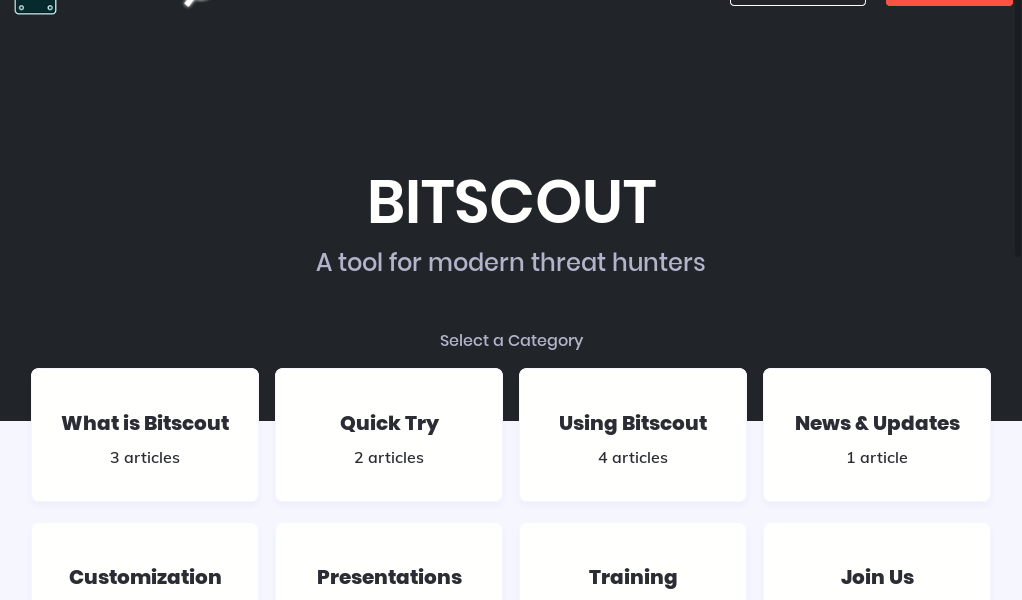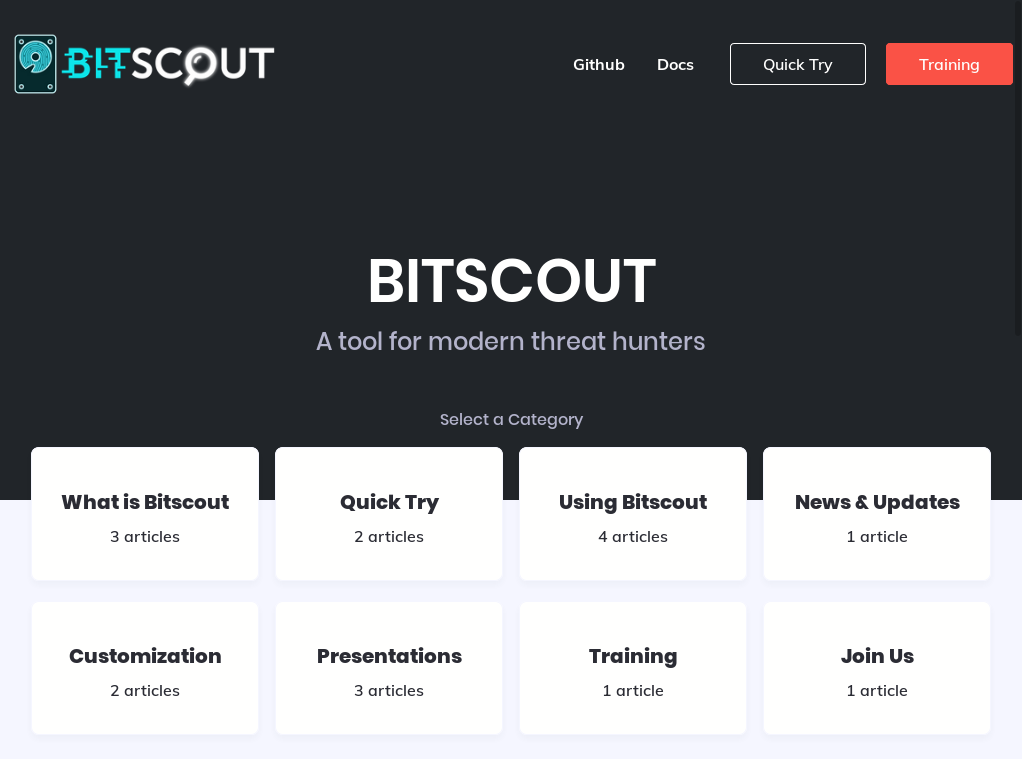
Virus outbreaks are always gruesome: people, animals or computer systems get infected within a short time. Of course, viruses spreading across our physical world always take priority over the virtual world. Nevertheless, everyone should keep doing their job, which includes all kinds of malware researchers, digital forensics experts and incident responders. At times like this, we all realize how important it is to be able to work remotely. However, the duties of a security researcher or a digital forensics expert pushes them to travel, visit victims or collect digital evidence in an ongoing hunt for malware artefacts. What can we do to reduce the need for travel? Of course, keep looking for replacement of our physical routines with remote ones.
It is about two and half years since we first open-sourced a tool for remote digital forensics called Bitscout. Born while I was with Digital Forensics Lab at INTERPOL, the tool has evolved and helped us in many cyberinvestigations. Based on the widely popular Ubuntu Linux distribution, it is packed with forensics and malware analysis tools created by a large number of excellent developers around the world.
What can it do? Well, we have tried to identify what it is that it *cannot* do and other expensive commercial tools used in digital forensics can. We have not really been able to find anything! Moreover, we have built so many new interesting techniques that are not available in commercial tools that it has every chance to replace commercial solutions in your organization if it gets into the right hands.
Let me just remind you about the approach we use in Bitscout:
- Bitscout is completely FREE, which helps reducing your forensics budget! Yay!
- It is designed to be remote, which also saves your time and money spent for travelling. And of course you can use the same techniques locally! To be frank, in light of the powers of all those forensic tools that are part of the toolkit, Bitscout itself is the least important element: the true value is in the knowledge of the underlying tools that you get access to by using Bitscout, not the product they ship with.
- Mastering Bitscout follows a steep curve, which, in the end, reinforces your experts’ technical foundations.
- Bitscout records remote forensics sessions internally, which makes it perfect for replaying and learning from more experienced users or using as evidential proof of discovery.
- It is fully open source, so you need not wait for the vendor to implement a patch or feature for you: you are free to reverse-engineer and modify any part of it.
Today, I am happy to announce that we are releasing a new version of Bitscout, based on the upcoming release of Ubuntu 20.04, scheduled for April 2020.
So, what is new in Bitscout 20.04 other than extended hardware support leveraging new OS and updated forensics tools from Canonical Ltd official repositories?
First of all, we have launched a project website at bitscout-forensics.info.
The website should become the go-to destination for those looking for tips and tricks on remote forensics using Bitscout and whatnot. In reality, Bitscout had been our internal tool for a long time and had been used only by a limited number of highly skilled researchers, who knew exactly how to use it. Yes, like many researchers, we lacked proper documentation and manuals which we will address with our new website. We have already linked several presentation videos and slides with live demos seen by security conferences and meetups. It is true that some of those commands we used in our demos are crazy long one-liners. So, to make it easy for you to copy them and try them out, we have started recording terminal sessions in ASCII video casts. Kudos to the awesome folks at asciinema.org! This way, should you want to try some of our black magic recipes, you can copy and paste them from a browser or a terminal into your own session.
Second, to address a popular request, we have released demo versions of three flavors of pre-built Bitscout images: minimal, balanced and full. This way, newcomers can easily try Bitscout without going through the whole build process. The download URLs for the ISO image files are available on the project website. However, please note they must not be used in a production environment.
Third, our little community of contributors keeps growing. I am happy to highlight some of the features contributed by others. Kudos to Xavier Mertens aka @xme!
- The following new tools from the security community are now part of Bitscout (full build) by default:
- RegRipper,
- Bulk Extractor,
- Loki.
It is great to have modern scanners such as Loki with an updated rich collection of Yara rules that comes with it.
- Optional logging of bash commands to a remote syslog server. This is particularly useful for environments where a Bitscout instance may be unexpectedly powered off or disconnected for a long time due to a network failure. It is also a great way to remember which commands you have run to find the clues.
And, if it feels hard for you to start using Bitscout, then join our training session on April 5-6 in the beautiful city of Barcelona, Spain. We will be demonstrating how to build your own Bitscout and customize it with your own tools, and of course walking you through the standard forensics procedure. Some of our advanced tasks include hypervisor debugging to overcome just about any type of proprietary full disk encryption. Our exercises will focus on the most popular platforms, covering Windows, Linux and macOS forensics challenges, along with some real malware. Stay safe and we hope to see some of you in Barcelona! Join us there!
Cybersecurity Research During the Coronavirus Outbreak and After






















Pallavi Shelke
Thank you